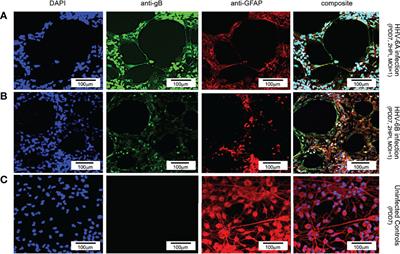ORIGINAL RESEARCH
Published on 13 Jul 2022
Differential Impacts of HHV-6A versus HHV-6B Infection in Differentiated Human Neural Stem Cells

doi 10.3389/fimmu.2022.847106
- 3,066 views
- 9 citations
5,963
Total downloads
20k
Total views and downloads
ORIGINAL RESEARCH
Published on 13 Jul 2022

MINI REVIEW
Published on 10 Feb 2022

ORIGINAL RESEARCH
Published on 29 Nov 2021

MINI REVIEW
Published on 25 Mar 2021
